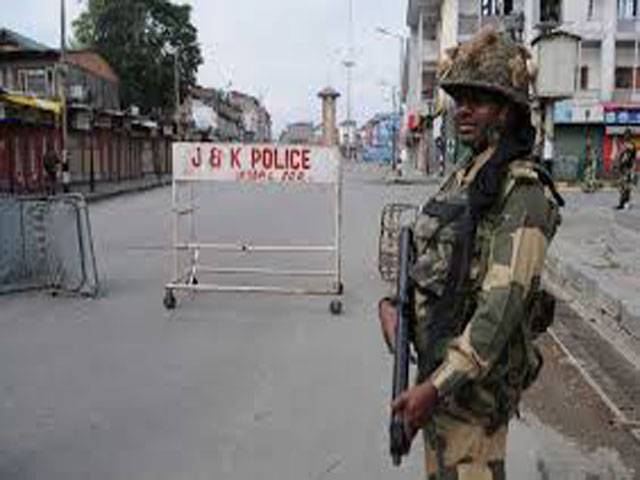ISLAMABAD - The Indian authorities in Occupied Kashmir have further tightened the strict clampdown ahead of India’s Independence Day, tomorrow (15th August), adding more to the sufferings of the oppressed people of the territory.
According to Kashmir Media Service, the occupied territory has been in a lock down since the Narendra Modi government’s decision to scrap the special status of Jammu and Kashmir by abrogating the Article 370 of the Indian Constitution earlier this month.
The communication blackout continues on the 10th successive day, Wednesday, as the authorities keep the internet and telephone links snapped and impose strict restrictions on media.
The Indian government had snapped television, telephone and internet links to prevent demonstrations against its decision of revoking Article 370 on 5th August. Before that, the occupation authorities had clamped an unprecedented communications blackout on the territory and arrested many political leaders.
The occupation authorities continue to impose strict curfew and other restrictions across the Kashmir valley and several parts of Jammu region on the 10th straight day, today.
The authorities have converted the valley, particularly Srinagar, into a military garrison and a big concentration camp by deploying Indian troops and police personnel in every nook and corner.
With Internet services and telephone lines snapped, the occupied territory remains cut off from the external world. Local newspaper even failed to update their online editions since the night of 4th August. Majority of newspapers could also not be printed during all these days due to curfew and other restrictions.
Meanwhile, almost all Hurriyat leaders, including Syed Ali Geelani and Mirwaiz Umar Farooq, have been put under house arrest or in jails. Over 900 political leaders and workers including even pro-India politicians like Farooq Abdullah, Omar Abdullah, Mehbooba Mufti, Engineer Abdur Rasheed and Sajjad Lone, have been detained. Due to severe blockade, a famine-like situation is emerging as people are facing severe shortage of essential commodities including baby food and life-saving medicines.






